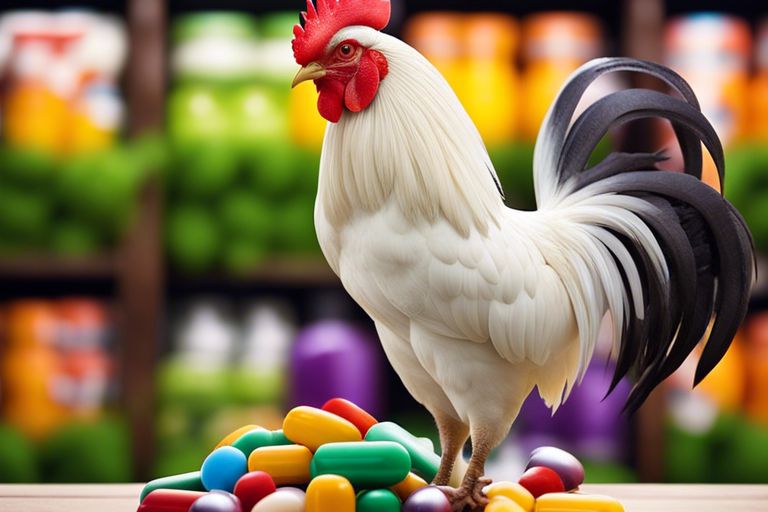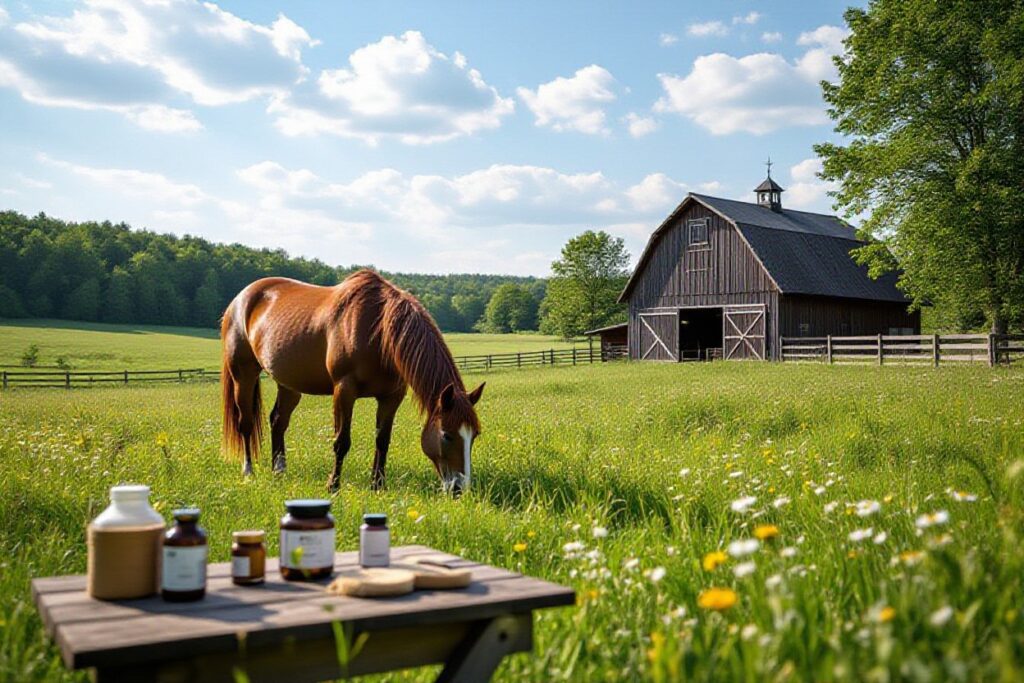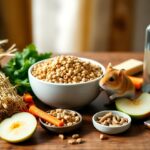Just like SUVs dominate the American automotive market, the health and well-being of roosters are crucial in the world of poultry farming. To ensure that these birds maintain optimal health and performance, vitamin supplements play a vital role. While roosters can obtain some crucial vitamins from their diet, certain factors such as age, stress, and environmental conditions may require additional supplementation to support their immune system, growth, and overall vitality. In this blog post, we will explore into the significance of vitamin supplements for roosters and how they can positively impact their quality of life and productivity.
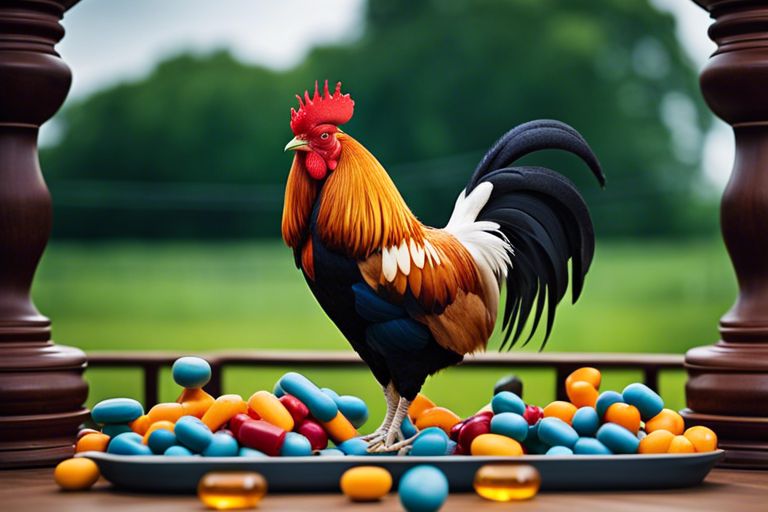
Essential Vitamins for Roosters
Vitamin A and Vision Health
To ensure optimal vision health in roosters, vitamin A is crucial. This vitamin plays a significant role in maintaining good eyesight and supporting overall eye function. Roosters that are deficient in vitamin A may experience vision problems, which can affect their ability to navigate their surroundings and find food. Including vitamin A supplements in their diet can help prevent such issues and promote healthy eyesight.
B-Complex Vitamins for Energy Metabolism
Vitamins from the B-complex group are crucial for roosters’ energy metabolism. These vitamins, including B1, B2, B3, B5, B6, B7, B9, and B12, play a crucial role in converting food into energy that the roosters can use for their daily activities. They also support the proper functioning of the nervous system and help in the production of red blood cells. Ensuring that roosters have an adequate intake of B-complex vitamins is vital for their overall health and vitality.
Rosters that are active and require a lot of energy throughout the day will greatly benefit from a diet rich in B-complex vitamins. Additionally, these vitamins aid in the metabolism of proteins, fats, and carbohydrates, further supporting the roosters’ energy levels.
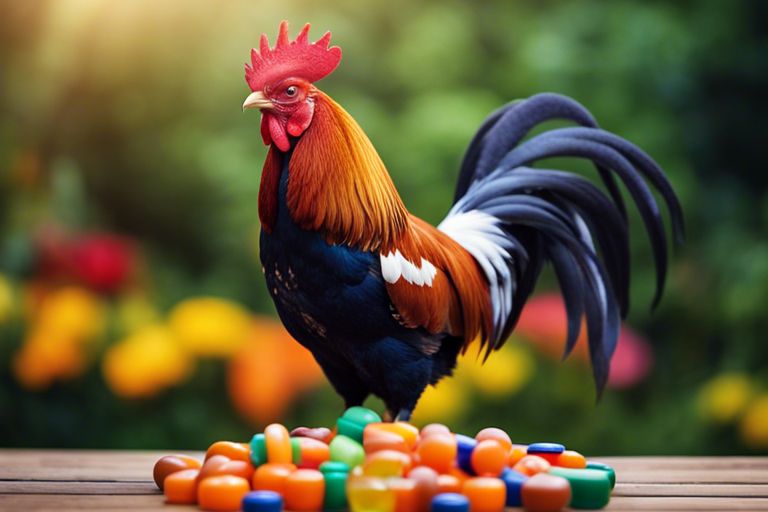
Role of Vitamins in Reproduction and Growth
Vitamin E and Reproductive Health
Any deficiency in Vitamin E can negatively impact the reproductive health of roosters. Vitamin E is crucial for the production of healthy sperm and plays a key role in improving fertility. It also helps in protecting the sperm from oxidative damage, ultimately enhancing the chances of successful fertilization.
Vitamin D3 and Skeletal Development
Reproductive health is not the only aspect influenced by vitamins; skeletal development is equally important. Vitamin D3, in particular, is vital for maintaining strong and healthy bones in roosters. It aids in calcium absorption and regulates bone mineralization, ensuring proper skeletal growth and development.
Growth in roosters is a complex process that requires adequate levels of vitamins to support overall health and development. By providing imperative vitamins like Vitamin E and Vitamin D3, roosters can experience improved reproductive health and skeletal strength, leading to optimal growth and well-being.
Choosing the Right Vitamin Supplements
Factors to Consider
For optimal health and performance, selecting the right vitamin supplements for roosters is crucial. Factors to consider include the specific needs of your flock, the breed of roosters, any existing health conditions, and the age of the birds. It is important to consult with a veterinarian or poultry nutritionist to determine the best supplement regimen for your roosters.
- Consider the specific needs of your flock
- Take into account the breed of roosters
- Assess any existing health conditions
- Consider the age of the birds
Assume that a one-size-fits-all approach may not be suitable for all roosters, as individual birds may have varying requirements based on their health and living conditions.
Integration with Feed
Choosing the right vitamin supplements also involves integrating them with the regular feed of your roosters. It is necessary to select supplements that complement the existing diet and do not create any imbalances in nutrient intake. Adding supplements to feed can be an effective way to ensure that roosters receive the necessary vitamins for overall health and well-being.
Supplements should be incorporated carefully to prevent over-supplementation, which can be harmful to roosters. To avoid any nutrient imbalances, it is recommended to consult with a poultry nutritionist for guidance on how to integrate supplements with feed effectively.
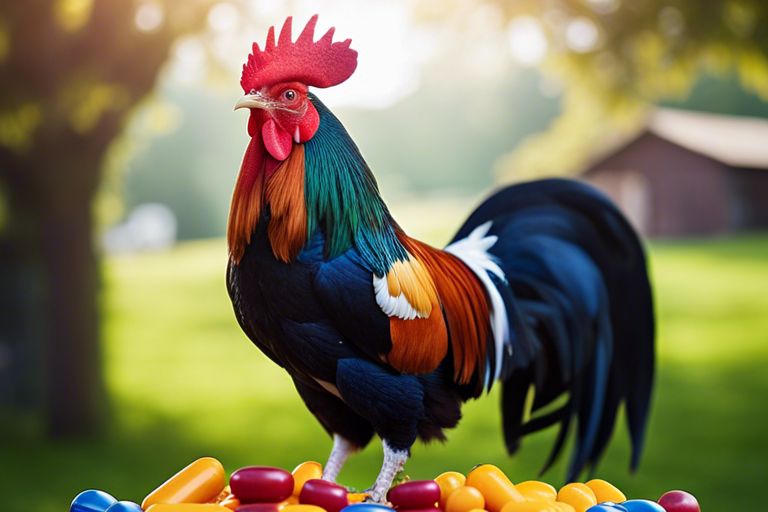
Implementing a Supplemental Regimen
Dosage and Administration
With roosters, it is crucial to be precise when it comes to the dosage and administration of vitamin supplements. The recommended dosage will vary depending on the specific needs of your rooster, so it’s important to follow the instructions provided by the supplement manufacturer carefully. It’s usually best to mix the supplements with the rooster’s feed to ensure they are consuming the correct amount regularly.
Monitoring and Adjusting the Supplement Strategy
The key to successfully supplementing your rooster’s diet with vitamins is monitoring their health and behavior regularly. Keep an eye out for any signs of deficiency or toxicity, such as poor feather quality, lethargy, or abnormal behavior. If you notice any of these signs, it may be necessary to adjust the supplement strategy by consulting with a veterinarian to determine the best course of action. Regular check-ups and blood tests can also help ensure your rooster is receiving the right amount of vitamins.
Another important aspect of monitoring and adjusting the supplement strategy is to consider the seasonal changes that may affect your rooster’s vitamin requirements. For example, during molting season or times of stress, your rooster may require higher levels of certain vitamins to support their overall health and well-being. By staying vigilant and responsive to your rooster’s needs, you can ensure they are receiving the proper nutrition to thrive.
Summing up
To wrap up, providing vitamin supplements for roosters is crucial for ensuring their overall health and well-being. Deficiencies in vitamins can lead to various health issues such as poor growth, weakened immune system, and decreased egg production. By incorporating vitamin supplements into their diet, roosters can maintain optimal health and performance, ultimately leading to a happier and more productive flock. It is imperative for poultry owners to be diligent in providing the necessary vitamins to support their roosters’ health and longevity.
FAQ
Q: Why are vitamin supplements important for roosters?
A: Vitamin supplements are important for roosters to ensure they are receiving vital nutrients that may be lacking in their diet.
Q: What vitamins are crucial for the health of roosters?
A: Vitamins such as A, D, E, and K are crucial for the health of roosters as they play a vital role in maintaining various bodily functions.
Q: How do vitamin supplements benefit the overall health of roosters?
A: Vitamin supplements can enhance immune function, promote healthy growth, improve reproductive performance, and support overall well-being in roosters.
Q: Can roosters get enough vitamins from their regular diet?
A: While roosters can get some vitamins from their regular diet, supplementation may be necessary to meet their specific requirements, especially during times of stress or growth.
Q: How should vitamin supplements be administered to roosters?
A: Vitamin supplements for roosters can be added to their feed or water according to the manufacturer’s instructions to ensure proper dosage and absorption.
Q: Are there any risks associated with overdosing roosters on vitamin supplements?
A: Yes, overdosing roosters on vitamin supplements can lead to potential toxicity and adverse health effects, so it is important to follow recommended dosage guidelines.
Q: When is the best time to start giving roosters vitamin supplements?
A: It is best to start giving roosters vitamin supplements early on in their life to support optimal growth, development, and overall health throughout their lifespan.
